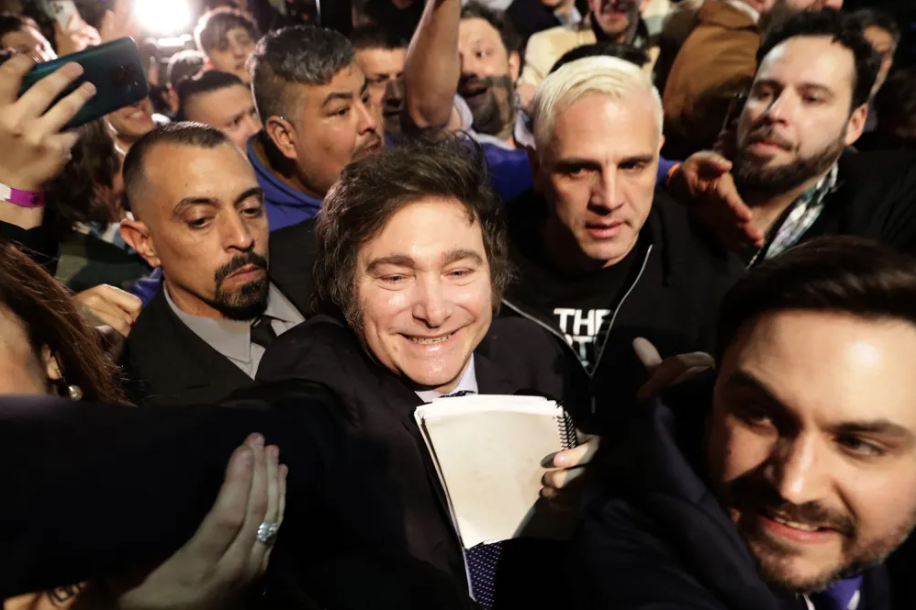The presidential front-runner may be hard to pin down politically, but his “us vs. them” rhetoric is part of a long Latin American tradition.
By Oliver Stuenkel
When Javier Milei rose to first place in Argentina’s recent national primaries, observers around the world disagreed on how to best make sense of the insurgent candidate. Brazil’s center-right Estadao newspaper described Milei as “extremist” and “far right”; Al Jazeera characterized him as a “populist,” while El País referred to him as an “ultraliberal libertarian” and highlighted that Milei thinks of himself as an “anarcho-capitalist.”
That debate will continue as Milei now seems to have a serious shot at becoming the next tenant of the Casa Rosada in Buenos Aires; Argentines head to the polls to decide on Oct. 22. And perhaps such varying descriptions are only natural for a candidate who doesn’t belong to an established political party—and who defends policy proposals that often seem incompatible and, his critics say, ill conceived. His proposals to lift capital restrictions, lower taxes, repay the country’s debts to the International Monetary Fund, and modernize labor laws would find support among mainstream liberals, yet his calls for permitting the sale of human organs and abolishing the ministries of environment, health, and education reflect radical libertarian views.
At the same time, Milei’s decision to pick Victoria Villarruel, notorious for her defense of Argentina’s 1976-83 dictatorship, as his running mate, reveals illiberal and possibly…
Read full article here









